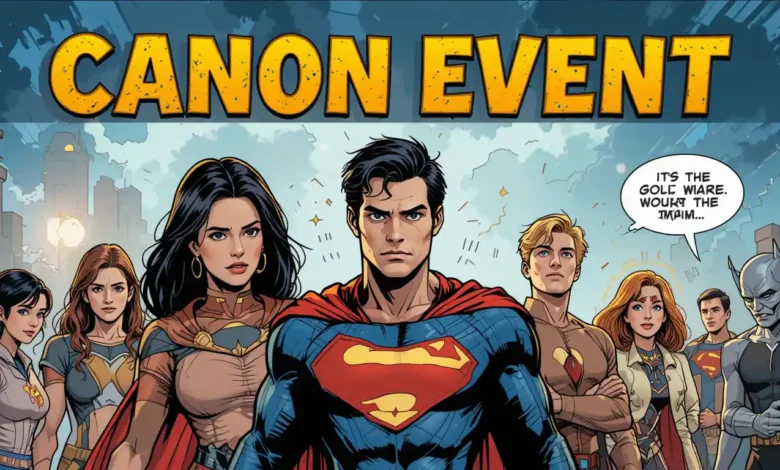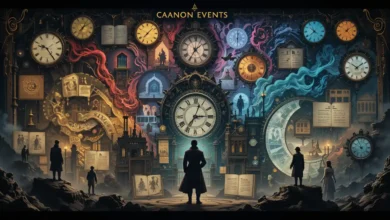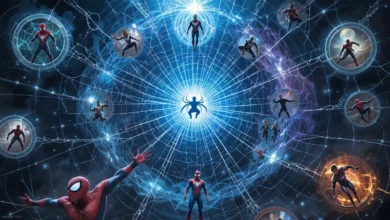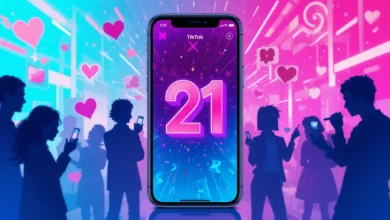What Is a Canon Event Example

In the realm of storytelling, the term “canon” often holds significant weight. It refers to the official, recognized events, characters, and settings within a particular narrative universe. A “canon event” is an event that is part of this recognized storyline. Canon events are crucial because they shape the continuity and development of a story, influencing character arcs, plot progression, and the overall coherence of the narrative. This blog post delves into what constitutes a canon event, providing various examples from popular media to illustrate their importance and impact.
Canon Events
A canon event is an official part of a narrative that is recognized as authentic within the fictional universe. These events are integral to the story’s continuity and contribute to the development of characters, themes, and plotlines. Canon events are often meticulously planned by the creators to ensure consistency and coherence in the narrative.
Canon Events in Literature
Literature offers numerous examples of canon events that have significantly impacted the narrative structure and character development. Here are a few notable instances:
- “The Great Gatsby” by F. Scott Fitzgerald: The death of Gatsby is a pivotal canon event that underscores the novel’s themes of the American Dream and the illusion of success.
- “To Kill a Mockingbird” by Harper Lee: The trial of Tom Robinson is a canon event that highlights the themes of racial injustice and moral growth in the novel.
- “1984” by George Orwell: Winston Smith’s capture and subsequent torture are canon events that illustrate the pervasive control of the totalitarian regime and the futility of resistance.
Canon Events in Film and Television
In film and television, canon events often serve as major plot points that shape the series’ direction and character arcs. Some iconic examples include:
- “Star Wars” series: The revelation that Darth Vader is Luke Skywalker’s father is a significant canon event that profoundly affects the storyline and character relationships.
- “Breaking Bad”: Walter White’s decision to enter the methamphetamine business is a canon event that sets the entire series in motion, defining his character’s transformation.
- “Game of Thrones”: The Red Wedding is a brutal canon event that dramatically alters the political landscape of the series and impacts numerous characters.
Canon Events in Comic Books
Comic books, with their long-running series and interconnected storylines, are rich with canon events that define their universes. Some key examples include:
- “The Death of Superman”: This canon event had a significant impact on the DC Universe, affecting numerous characters and storylines.
- “The Dark Phoenix Saga” in X-Men: Jean Grey’s transformation into the Dark Phoenix is a canon event that has had lasting repercussions in the Marvel Universe.
- “Civil War” in Marvel Comics: The conflict between superheroes over the Superhuman Registration Act is a major canon event that influenced many subsequent storylines and character arcs.
Canon Events in Video Games
Video games often incorporate canon events to advance their stories and deepen player engagement. Notable examples include:
- “The Legend of Zelda: Ocarina of Time”: Link’s acquisition of the Master Sword is a canon event that marks a significant turning point in the game’s narrative.
- “Mass Effect” series: The decision to save or sacrifice certain characters are canon events that affect the storyline and character relationships throughout the series.
- “The Last of Us”: Joel’s decision to save Ellie at the expense of the Fireflies’ potential cure is a canon event that shapes the game’s narrative and themes.
Canon vs. Non-Canon: What’s the Difference?
Understanding the distinction between canon and non-canon is crucial for comprehending a narrative’s structure. Canon events are official parts of the storyline, recognized by the creators and essential to the narrative continuity. Non-canon events, on the other hand, are not part of the official storyline and do not impact the main narrative.
The Impact of Canon Events on Fandoms
Canon events often have a profound impact on fandoms, influencing fan theories, discussions, and creative works. Fans engage deeply with canon events, analyzing their significance and speculating on their implications for the narrative.
Conclusion
Canon events are the backbone of any narrative, providing structure, coherence, and continuity. They shape character arcs, drive plot progression, and contribute to the thematic depth of the story. Understanding canon events is essential for appreciating the intricacies of storytelling and the impact of these pivotal moments on the narrative and its audience.
FAQs
- What is a canon event?
A canon event is an official part of a narrative that is recognized as authentic within the fictional universe. These events are integral to the story’s continuity and development.
- Can a story have non-canon events?
Yes, a story can have non-canon events, which are not part of the official storyline and do not impact the main narrative. These events are often found in expanded universe materials or alternate versions.
- Why are canon events important?
Canon events are important because they shape the continuity and development of a story, influencing character arcs, plot progression, and the overall coherence of the narrative.
- Can canon events change?
While canon events are typically fixed, some narratives may introduce changes or retcons (retroactive continuity) to alter or reinterpret certain events, often to resolve inconsistencies or update the story for modern audiences.
- How do fans react to canon events?
Fans often engage deeply with canon events, analyzing their significance and speculating on their implications for the narrative. Canon events can spark extensive discussions, emotional responses, and inspire fan creations such as fan fiction and fan art.





